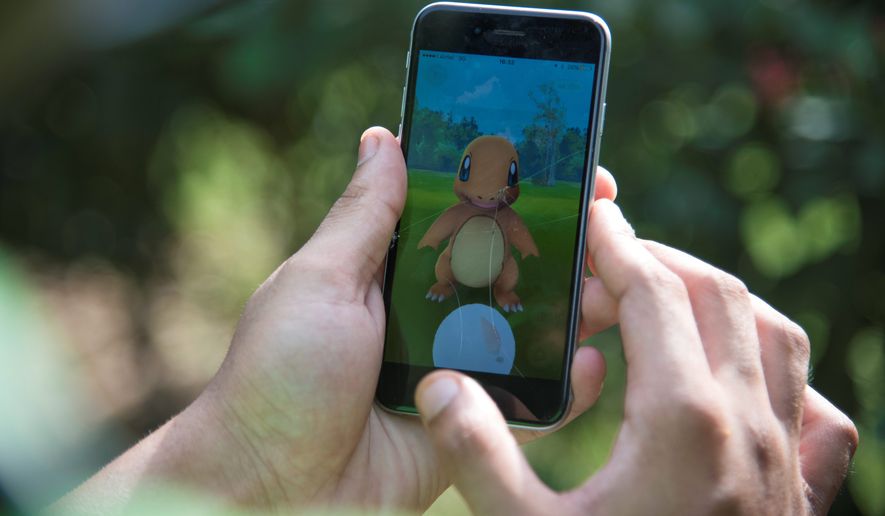MOSCOW — From pro-Kremlin politicians to Cossacks, many Russians are convinced that the wildly popular Pokemon Go smartphone app is either a cunning Western plot to destabilize Russia or the spawn of Satan.
And quite possibly both.
“There is a feeling that the devil came through this mechanism and is simply trying to destroy us spiritually from within,” Franz Klintsevich, a senior Russian security official, told the state news agency TASS.
Although Pokemon Go by Nintendo has not received an official release in Russia, many people have downloaded the app by adjusting their smartphone settings. Popular sites for “catching” the game’s garish “pocket monsters” include Red Square, the territory of the city’s landmark Hotel Ukrainia and other areas in central Moscow.
Mr. Klintsevich, vice chairman of Russia’s Committee on Security and Defense of the upper house of parliament, also expressed concerns that the augmented reality game is a Western “psychological operation” that could be used to manipulate the minds of young people.
“This could lead all the way to revolution,” he said.
Mr. Klintsevich urged both houses of Russia’s parliament to consider legislation to restrict the use of Pokemon Go after Sept. 18 parliamentary elections.
State media quoted a retired national security service agent this month as saying the game could be a way for the U.S. to enlist unknowing people, including soldiers, into taking photographs of strategically important locations. The gaming app uses a smartphone’s GPS to create a map of the user’s surroundings and taps into the phone’s camera to superimpose an image of a Pokemon monster on the screen.
“Imagine that the little beast in question doesn’t appear in some park but at a secret site where a conscript or other soldier takes and photographs it with his camera,” Aleksander Mikhailov, a retired major general of the Federal Security Service, told state news agency RIA Novosti. “It’s recruitment by one’s own personal desire and without any coercion. This is the ideal way for secret services to gather information.”
Russia’s Communists, the second-largest political party in parliament, are also up in arms.
“Users of mobile devices with this game installed on it could become unsuspecting accomplices in terrorist acts,” read an official complaint that Communist Party lawmaker Denis Voronenkov sent to the Federal Security Service.
Mr. Voronenkov also said Pokemon Go was developed by the CIA to carry out “uninterrupted spying activities” in Russia.
His opinion was echoed by Alexander Dugin, an ultranationalist thinker with reported links to the Kremlin who said Niantic, the San-Francisco-based developer of Pokemon Go, has links to a CIA venture capital firm.
In St. Petersburg, Russia’s second-biggest city, the leader of the local Cossacks urged Russian officials to ban the smartphone app.
“We need to drag people out of the virtual world. It all smacks of Satanism,” Andrei Polyakov, leader of the Irbis Orthodox Union of Cossacks, told Russian media.
’Massive case of paranoia’
God’s Will, a Russian Orthodox Christian movement, has publicly appealed to Nintendo to prevent “iPhone zombies” from hunting Pokemons in churches and cemeteries by excluding all holy places from the game. Russian state media have warned viewers that anyone caught playing the game in church or on international borders could face up to three years in prison.
Although there is no talk of an official ban on the smartphone app, Russian Communications Minister Nikolai Nikiforov said he is “starting to suspect” it may have been developed by U.S. intelligence services. The Kremlin’s Council for Human Rights and Civil Society has said it will review concerns about the game.
Meanwhile, Kremlin spokesman Dmitry Peskov was distinctly unimpressed with the prospect of tourists hunting virtual-reality monsters around Red Square and Lenin’s tomb.
“Pokemons are no reason to visit the Kremlin, which is a jewel of world culture,” he said.
Russian President Vladimir Putin has not commented on Pokemon Go.
Not all Russians are suspicious of the game.
“All these allegations seem like a massive case of paranoia to me,” Tatiana Marinskaya, a 40-year-old Moscow-based office manager, told The Washington Times. “I’ve seen Pokemon Go on a friend’s phone, and it doesn’t look like something I’d waste my time on.”
Others are far more enthusiastic. On Tuesday, Russian media reported that a student from St. Petersburg had caught 147 Pokemons, setting a world record.
In a bid to counter Pokemon Go mania, Moscow city officials announced Monday that a Russian-developed version of the game would be launched in the capital next month. It will feature famous Russians such as Ivan the Terrible and Pyotr Chaikovsky in place of multicolored Pokemon creatures.
The storm over Pokemon Go reflects widespread suspicions among Russian officials over foreign technological innovations.
Mr. Putin in the past has called the internet a CIA project, and Ramzan Kadyrov, the Kremlin-installed leader of Chechnya, recently urged men to prevent their wives from using the WhatsApp smartphone app after anger over a forced marriage spread on the popular messaging service.
Last month, Russia’s parliament approved a legislative package tightening controls over telecommunications companies and other providers of online services.




Please read our comment policy before commenting.